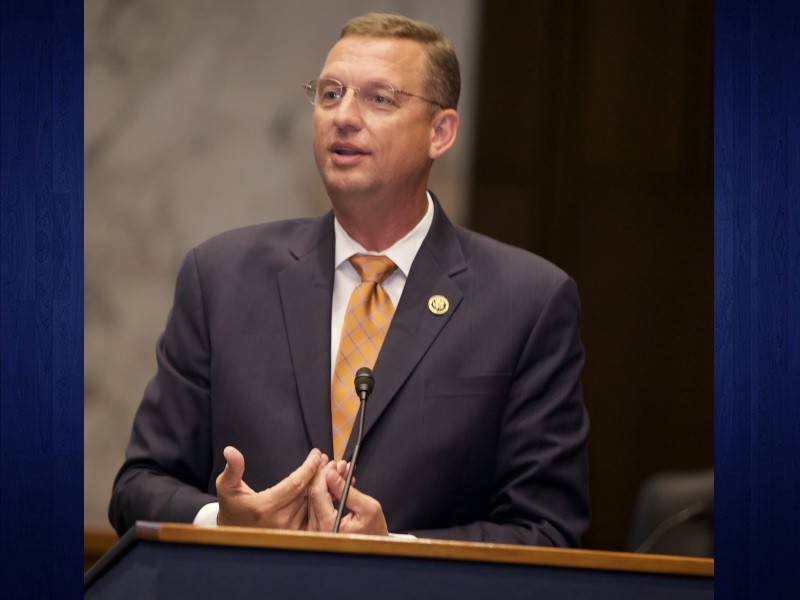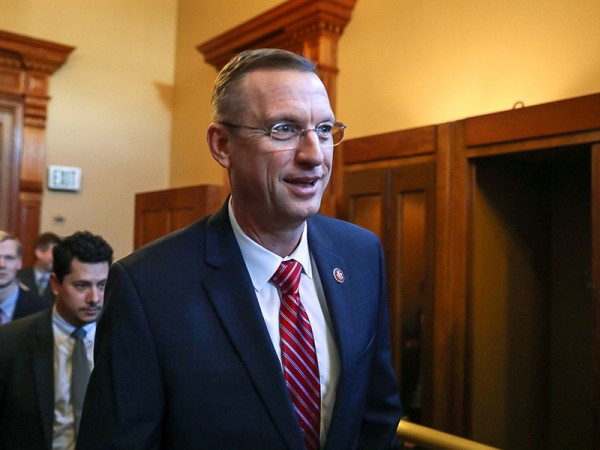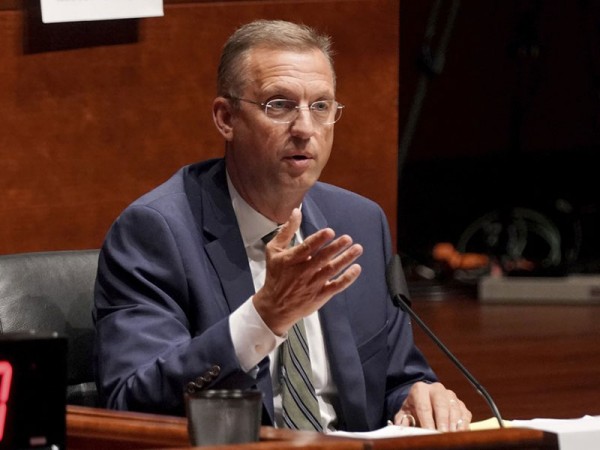North Georgia Congressman Doug Collins this week introduced the Substance Abuse Prevention Act in the U.S. House, a measure designed to bring practical solutions to tackling the ongoing opioid epidemic in the United State.
"The opioid crisis represents one of the most devastating yet complex challenges of our day, and it demands a holistic response, Collins said in a press statement.
"I’ve seen drug courts in Georgia help people break free from addiction and lessen the strain on the justice system. Through investments like this, the Substance Abuse Prevention Act would help communities better support victims of opioid abuse and enable law enforcement to fight the scourge of opioids in our neighborhoods."
The co-sponsor of the Substance Abuse Prevention Act is Democratic Congressman Ted Deutch of Florida.
“I’m thankful for Congressman Deutch’s leadership on this front and for the initiative of Senator Cornyn in introducing this bill on the other side of the Capitol,” said Collins.
Collins' office in Washington provided an overview of the bill:
- Office of National Drug Control Policy—Reauthorizes the Office of National Drug Control Policy (ONDCP) at the White House, which oversees all Executive Branch efforts on narcotics control, including the development of a national drug control strategy, while ensuring that these efforts strengthen and complement state and local anti-drug activities.
- Drug-Free Communities Program—Reauthorizes the Drug-Free Communities Program, one of our nation’s most important programs for preventing youth substance abuse and reducing demand for illicit narcotics at the community level.
- Drug Courts—Reauthorizes Department of Justice funding for drug courts, which are on the front lines of preventing drug addiction through targeted interventions for individuals with drug addiction and substance abuse disorders. This legislation would also allow non-profit organizations to provide important training and technical assistance to drug courts.
- High-Intensity Drug Trafficking Area Task Forces—Reauthorizes the ONDCP High-Intensity Drug Trafficking Area (HIDTA) Program, which provides funding for federal, state and local law enforcement task forces operating in our nation’s most critical drug trafficking regions. This legislation would also improve the program by targeting funds for implementation of a coordinated drug overdose response strategy, including coordination with public health officials and other multi-disciplinary efforts to reduce demand for narcotics and prevent drug abuse. It also provides supplemental grants to law enforcement agencies to protect law enforcement from accidental exposure to dangerous narcotics.
- Public Awareness—Allows the ONDCP Director to participate in and expand opioid and heroin awareness campaigns authorized under the Comprehensive Addiction and Recovery Act.
- Protecting Families with Substance Abuse Challenges—Improves collaboration and provides resources to the Department of Health and Human Services (HHS) to help families stay together while battling substance abuse—including through screening, treatment, supportive housing and other interventions.
- Better Substance Abuse Treatment—Directs the Government Accountability Office and the Centers for Medicare and Medicaid Services to report on improving substance abuse disorder treatment reimbursement to attract a more talented workforce. The bill also encourages better Medicaid substance abuse disorder reimbursement.
- Educating Prescribers—Requires Attorney General and HHS Secretary to complete a plan for educating and training medical practitioners in best practices for prescribing controlled substances.
The Gainesville Congressman said the Substance Abuse Prevention Act has support from the Community Anti-Drug Coalitions of America, the Addiction Policy Forum, the National District Attorneys Association, the National Association for Children of Addiction, the National Association of Police Organizations, the Moyer Foundation, the National Council for Behavioral Health, the Fraternal Order of Police, the National HIDTA Directors Association, the Partnership for Drug-Free Kids, the National Criminal Justice Association and the National Association of Drug Court Professionals.













